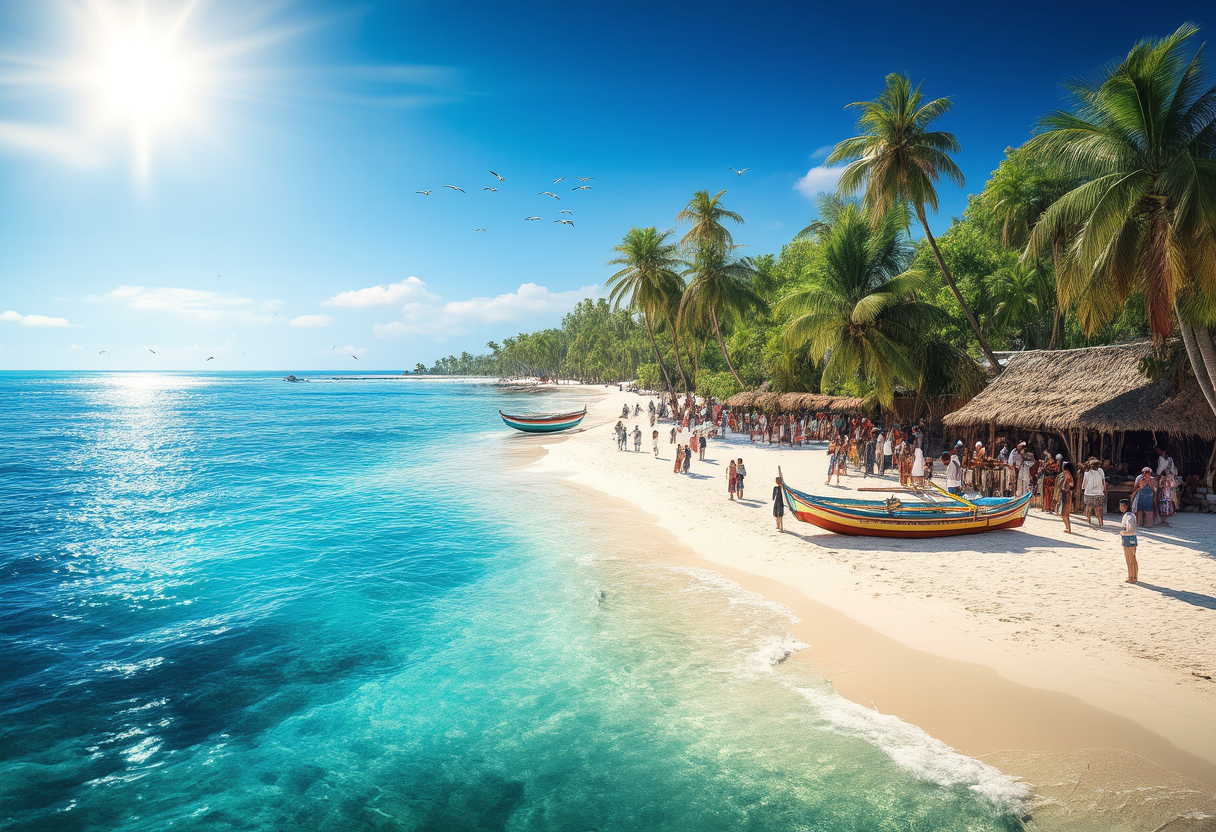Exploring Island Tourism: A Gateway to Unique Cultural Experiences!
Island tourism presents an unparalleled opportunity to explore diverse cultures, stunning landscapes, and unique adventures. This phenomenon is becoming increasingly significant in today's global travel scene, drawing millions to iconic islands. From Bahamian beaches to the lush shores of Bali, each island offers something special. Exploring island tourism means engaging with local traditions, savoring distinctive cuisines, and understanding the rich histories that make these destinations unique. Adventurers can discover pristine natural wonders or unwind amidst serene settings. This article delves deep into the myriad experiences that island tourism provides, showcasing why it is a favored choice among travelers.
Understanding the Appeal of Island Tourism
Island tourism has grown exponentially in recent years. Travelers are increasingly drawn to the promise of idyllic beaches, exotic cultures, and tranquil atmospheres. The allure of island tourism lies not just in its aesthetic charm, but also in the unique experiences each destination offers. For instance, while the Maldives is renowned for its crystal-clear waters, Hawaii captivates visitors with its volcanic landscapes and vibrant local culture. Furthermore, island tourism often allows visitors to escape from their fast-paced lives and immerse themselves in nature, promoting mental rejuvenation and relaxation. Tourists engaged in island tourism can also partake in various outdoor activities, from snorkeling and diving to hiking and exploring local wildlife. Such activities offer not only adventure but also a connection to nature that is hard to find in urban settings. As global travel trends evolve, it is clear that island tourism remains a popular choice for those seeking adventure, relaxation, or cultural enrichment.
Cultural Riches: More than Just a Vacation
One significant aspect of island tourism is its emphasis on local culture. Each island boasts a rich tapestry of traditions, festivals, and culinary experiences that reflect its unique heritage. For example, during the festival of Diwali in Mauritius, visitors can witness the vibrant celebrations that blend Indian traditions with local customs. These cultural insights enhance the travel experience, allowing tourists to forge deeper connections with the islands they visit. Engaging with local communities through island tourism can also foster mutual understanding and respect between visitors and residents. Furthermore, learning about the historical significance of each destination helps enhance the appreciation of the local context. This cultural exploration is a core benefit of island tourism, revealing dimensions beyond mere sightseeing and relaxation. As travelers seek more meaningful experiences, they are increasingly prioritizing cultural authenticity during their trips.
Environmental Considerations: Sustainable Island Tourism
As island tourism continues to grow, so does the responsibility to maintain the environmental integrity of these breathtaking locales. The challenge lies in balancing tourism's economic benefits with the preservation of natural resources. Practices such as eco-tourism are gaining traction, promoting sustainable methods that minimize ecological footprints. Educational initiatives and community involvement are vital in fostering environmentally responsible island tourism. By engaging in eco-friendly practices, such as supporting local farmers and opting for sustainable accommodations, travelers play a crucial role in preserving the islands' natural beauty for future generations. Reducing waste and respecting wildlife are fundamental principles for travelers who wish to contribute positively during their journeys. Ultimately, sustainable island tourism ensures that these paradises remain untouched by the detrimental effects of mass tourism.
Technology's Role in Shaping Island Tourism Experiences
Technology is revolutionizing how we approach island tourism. From digital platforms facilitating travel planning to virtual tours showcasing remote islands, technology has made accessing these locations easier than ever. Social media has become a powerful tool for promoting island tourism, with stunning visuals attracting potential visitors. Travelers can now share their experiences online, influencing others and highlighting the beauty of various islands. Furthermore, mobile applications are enhancing user experiences by providing essential information at their fingertips. These tools enable travelers to connect with local tour guides, book accommodations, and organize activities efficiently. As technology continues to evolve, its integration into island tourism will likely lead to more innovative experiences that cater to modern travelers’ needs.
The Future of Island Tourism: Trends to Watch
Looking ahead, several trends are shaping the future of island tourism. The rising demand for personalized travel experiences suggests that more tourists will seek curated itineraries tailored to their preferences. The interest in wellness retreats also indicates a shift towards health-focused vacations, with tourists favoring relaxation and rejuvenation. Additionally, solo travel is gaining traction, offering individuals the chance to explore islands independently, fostering a sense of self-discovery. These trends highlight the changing dynamics of island tourism, demonstrating that adaptability is crucial for tourism operators. As preferences evolve, the industry must ensure it meets the needs of a diverse traveler demographic while maintaining the enchanting qualities of island tourism.
In conclusion, island tourism serves as a gateway to remarkable experiences that exceed expectations. With unique cultural insights, stunning natural landscapes, and a growing emphasis on sustainability, travelers are continually drawn to islands across the globe. By embracing these opportunities and responsibly planning their trips, tourists can enjoy enriching encounters that leave lasting memories. The choices we make today will shape the future landscape of island tourism, ensuring it remains a viable and treasured avenue for exploration and enjoyment.
